Introduction
In the midst of geopolitical tensions in the Middle East, specifically between Iran and Israel, one surprising factor is emerging — China’s optimism about business in the region. Despite the escalation of the conflict, Chinese shipments to Dubai’s logistics hub have surged by 20% this month compared to a year ago. Could this signal a major shift in how businesses view the Middle East market? Keep reading to learn more about the opportunities this conflict might present and the growth potential for Chinese businesses.
One of the Best Brokers in Europe
Before we dive deeper, it’s important to highlight some of the best brokers operating in Europe that allow you to take advantage of these emerging market opportunities. With the volatility in the Middle East, having a trusted broker with access to diverse assets and markets is crucial. Explore our recommended broker for more insights on expanding your portfolio during uncertain times.
Financial Performance
China’s Growing Footprint in the Middle East
Despite a volatile geopolitical environment, Chinese exports have surged in the region, signaling robust economic activity. With countries like Saudi Arabia and Iran looking to bolster relations with China, Chinese companies are eyeing the Middle East as an important trade hub. This growth is partly driven by increasing demand for goods like electric vehicles, batteries, and other necessities, despite the backdrop of rising tensions.
Key Highlights
- Chinese Shipments to Dubai’s Logistics Hub: A 20% year-on-year increase in shipments signals robust business optimism.
- China’s Strategic Influence: China’s diplomatic success in helping Saudi Arabia and Iran restore ties is adding to the region’s appeal.
- Economic Resilience Amidst War: The Iranian-Israeli conflict has not dampened optimism in China’s business dealings in the Middle East.
Profitability and Valuation
Chinese businesses are now tapping into a lucrative market that is growing in demand for essential goods. As trade routes to Europe become increasingly less viable due to geopolitical tensions, the Middle East is positioning itself as a key alternative for China’s expanding economic needs. Chinese businesses investing in the region stand to benefit from this shift in trade patterns.
Debt and Leverage
China’s approach to leveraging economic influence and accessing financial opportunities in the Middle East presents long-term growth potential. Despite sanctions on countries like Iran, Chinese firms continue to expand their footprint by tapping into local markets and fostering strategic partnerships.
Growth Prospects
The outlook for Chinese businesses in the Middle East remains positive. Chinese companies will likely see rapid growth in the coming years, especially if the conflict results in a relaxation of U.S. sanctions. As the region continues to stabilize, China’s economic interests could further benefit from the diversification of its trade relationships.
Technical Analysis
- Inflation Impact: While tensions rise, the broader global market sentiment reflects positive growth, especially in sectors tied to Chinese exports.
- Supply Chain Disruption: Oil price increases could disrupt global trade. However, China’s ongoing market penetration in the Middle East could alleviate some of these pressures.
Potential Catalysts
- U.S.-Iran Conflict Resolution: Should a peace deal be reached, this would unlock significant opportunities for Chinese businesses looking to tap into new infrastructure projects and tourism.
- Sanction Relief: Potential easing of sanctions against Iran could be a game-changer, allowing for significant economic activity in the region.
Leadership and Strategic Direction
The leadership of Chinese businesses is positioning them strategically for long-term success, not just through exports, but also by securing vital infrastructure deals across the Middle East. The continuing partnerships between China and local governments suggest that the Middle East’s role as an economic powerhouse will only grow stronger.
Impact of Macroeconomic Factors
Economic instability in the Middle East, spurred by the Iran-Israel conflict, may increase oil prices, which could present both a risk and an opportunity for Chinese companies. Should the conflict lead to a disruption in the Strait of Hormuz, global oil supply chains could be further strained, impacting everything from energy prices to international trade routes.
Total Addressable Market (TAM)
With the growing demand for electric vehicles, energy solutions, and tech exports, China’s total addressable market in the Middle East continues to expand. With Dubai at the center of this growth, Chinese companies are set to capture significant market share in this region.
Market Sentiment and Engagement
Despite the ongoing conflict, Chinese businesses remain relatively optimistic. Local market sentiment in places like Dubai remains strong, buoyed by China’s increasing presence in the region. With global businesses looking to diversify their portfolios, China’s resilience in the face of geopolitical challenges makes it an appealing market for investment.
Conclusions, Target Price Objectives, and Stop Losses
Given the current geopolitical landscape and the stability in Chinese business growth in the Middle East, investors should consider setting target prices based on the following time frames:
- Short-term (3-6 months): $50 per share for relevant Chinese companies.
- Medium-term (6-12 months): $70 per share as Middle Eastern trade grows.
- Long-term (1-3 years): $100 per share with the potential relaxation of sanctions and a more stable Middle East.
Stop Loss: For added protection, consider setting a stop loss around 10% below your target price to manage risk in case of a market downturn.
Discover More
For more insights into analyzing value and growth stocks poised for sustainable growth, consider this expert guide. It provides valuable strategies for identifying high-potential value and growth stocks.
We also have other highly attractive stocks in our portfolios. To explore these opportunities, visit our investment portfolios.
This analysis serves as information only and should not be interpreted as investment advice. Conduct your own research or consult with a financial advisor before making investment decisions.
Looking to Educate Yourself for More Investment Strategies?
Check out our free articles where we share our top investment strategies. They are worth their weight in gold!
📖 Read them on our blog: Investment Blog
For deeper insights into ETF investing, trading, and market strategies, explore these expert guides:
📘 ETF Investing: ETFs and Financial Serenity
📘 Technical Trading: The Art of Technical & Algorithmic Trading
📘 Stock Market Investing: Unearthing Gems in the Stock Market
📘 Biotech Stocks (High Risk, High Reward): Biotech Boom
📘 Crypto Investing & Trading: Cryptocurrency & Blockchain Revolution
Did you find this article insightful? Subscribe to the Bullish Stock Alerts newsletter so you never miss an update and gain access to exclusive stock market insights: https://bullishstockalerts.com/#newsletter.
Avez-vous trouvé cet article utile? Abonnez-vous à la newsletter de Bullish Stock Alerts pour recevoir toutes nos analyses exclusives sur les marchés boursiers : https://bullishstockalerts.com/#newsletter.


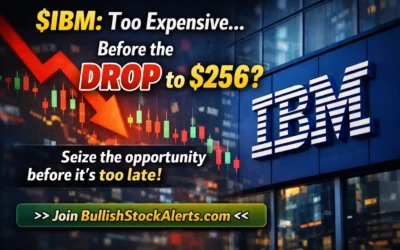
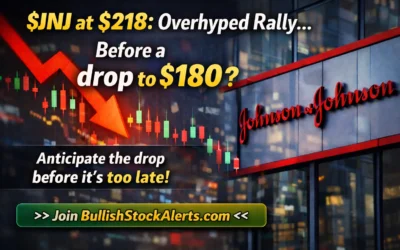
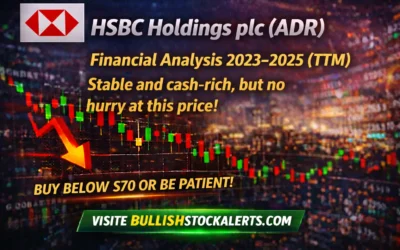
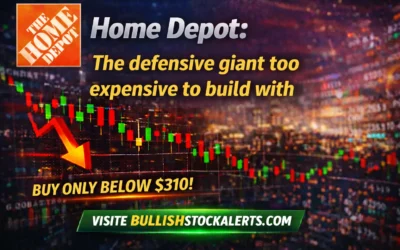
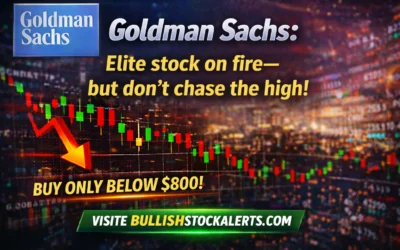
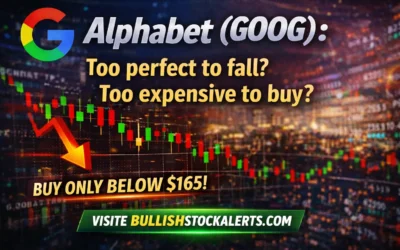
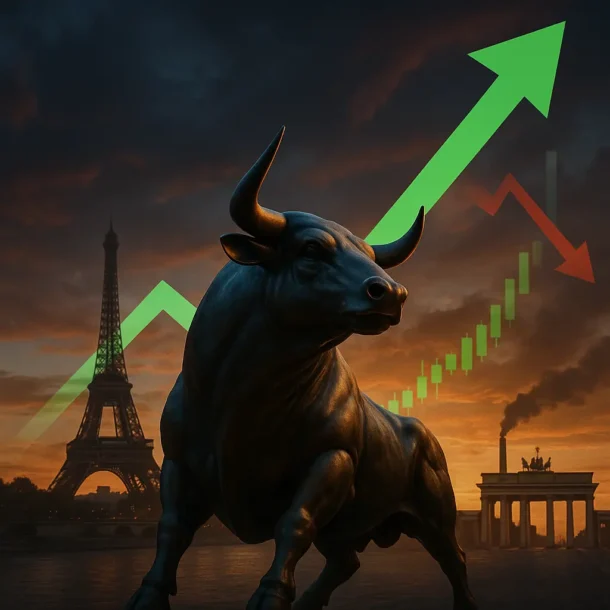
0 Comments